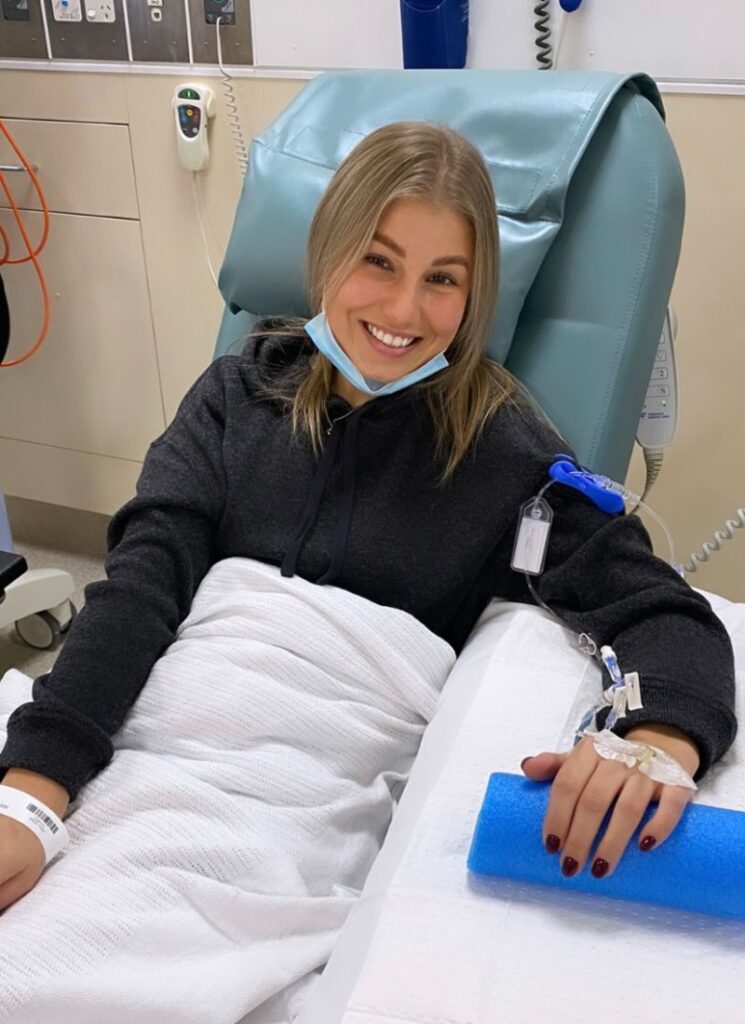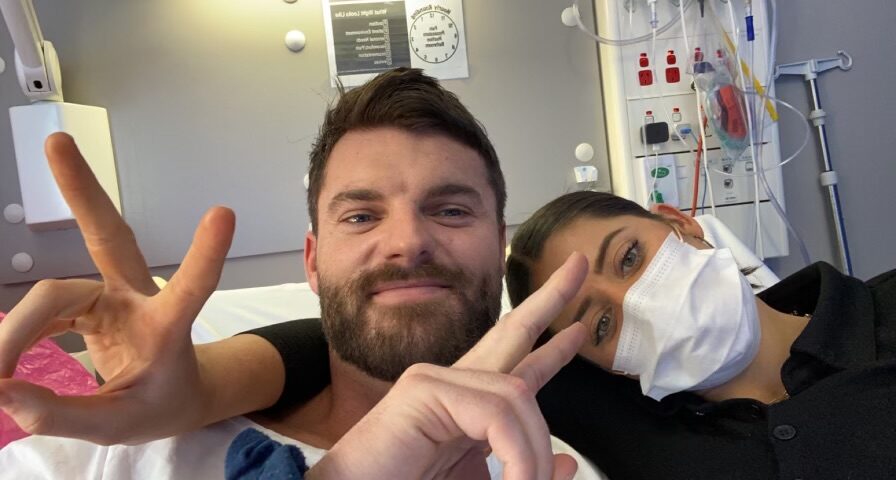Support vital life-changing research into IBD
When was the last time you had to make changes to your lifestyle to benefit your health?
For Brydie it was critical “In VCE, I began to have increasing indigestion pains, my GP told me it was nothing. I used Gaviscon to get by and deal with the pain, completing my end of year exams with what felt like a ball of fire in my stomach.”
Brydie sought further medical advice and was eventually diagnosed with Crohn’s disease.
For those like Brydie with a chronic condition such as Crohn’s disease or ulcerative colitis often called inflammatory bowel diseases (IBDs), diet, stress and other trigger factors are a labyrinth of misinformation and taking the wrong path can lead to life-threatening complications. In some cases, any solid food will trigger pain and symptoms, and sometimes the only solution is a liquid diet.
Before research began indicating a connection between IBD and diet, the potential for food and stress to trigger symptoms was not raised by healthcare professionals and still many people diagnosed will not be referred to a dietitian or psychologist.
Over two-thirds of people with IBD do not have a dietitian as part of their healthcare team and only a tenth have a psychologist. Donate today and you are helping people diagnosed with IBD to take control of their condition.
The connection between diet and the two main types of IBD, Crohn’s disease and ulcerative colitis, is a well-established fact now but how they interact is mostly a mystery. Each person with Crohn’s or colitis may have triggers that aggravate their symptoms but they are different for each person. It is only through rigorous research that answers can be found for better interventions and care.

“Further dietary research in IBD is crucial for clinicians, researchers and those living with IBD to understand how food affects inflammation, symptoms, mental health and quality of life in people with IBD as diet is a modifiable lifestyle factor that can potentially improve the disease course of those living with IBD.”
Jessica Fitzpatrick, CCA IBD PhD Scholarship recipient
Several of the Top Ten Research Priorities identified by CCA are focused on insufficiently researched areas including diet, mental health and other lifestyle factors that affect IBD.
Funding research is vital to create better and safer treatments and ultimately a cure. The top ten questions from the Research Priorities project were determined by people with IBD, carers, healthcare practitioners and clinical researchers. That means everyone agrees that there is a desperate need for more understanding of IBD management beyond medications.

“During my worst flare, I had a negative mindset about my diet after I stopped responding to my medication and steroids. I simply began eating whatever I wanted with the mindset ‘well it couldn’t get any worse’ – but it did… dramatically! I didn’t realise how important my IBD diet is to staying on track and keeping my inflammation down to a minimum. It truly took a long time to get my diet back on track with help from all my specialists.”
Charlotte Hyne, diagnosed with Crohn’s disease in 2007.
Your donation will help fund research to help people like Charlotte manage their IBD.
For people newly diagnosed with Crohn’s or colitis, diet and mental health are often an afterthought and are not considered as important as medication. But chronic, lifelong conditions need to be managed with more than just corticosteroids and immunosuppressants. Having evidenced-based direction on diet can help make food less of a minefield. No one should feel stressed and anxious every time they eat because they lack the information to make safe and healthy choices.

“I wish there was more readily available information for people newly diagnosed with the condition about different factors that can affect this condition like environmental, hormonal, and dietary factors.”
Nathan Biggs, diagnosed with ulcerative colitis in 2009.
With your help, researchers can piece together a roadmap to guide people affected by IBD on their healthcare journey. Your donation will fund a research scholarship into key priorities in prevention and management of Crohn’s and colitis.
To donate, please complete the attached form and return it in the enclosed reply paid envelope, or donate online at www.crohnsandcolitis.org.au/appeal or call us on 1800 138 029.
Thank you for helping to advance research into Crohn’s and colitis.
Yours sincerely,
Leanne Raven
Chief Executive Officer
Crohn’s & Colitis Australia